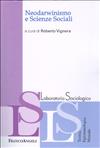
Since the early days of gene therapy, both the scientific community and the public have perceived the ethical challenges intrinsic to this discipline. First, the technology exploited by gene therapy is still experimental and burdened by important safety issues. Second, in several instances gene therapy aims at stably modifying the genetic characteristics of individuals. Third, the same modifications could in principle be applied also to embryos, foetuses or germ cells. Finally, while gene therapy applications are generally accepted for therapeutic purposes, the same gene transfer technologies could also be exploited to improve the aesthetic appearance, or the physical and intellectual performance of people. The definition of suitable guidelines for a controlled, ethically accepted translation of gene therapy to the clinics remains a major challenge for the near future.



